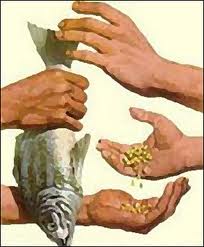What is Culture?
It is morning. The boy looks at the clock, decides to get out of bed and goes to the bathroom. The child brushes his teeth, takes a shower, and dresses for school. He has breakfast (probably eggs, bread, and milk), which his mother had prepared. His dad, dressed for work, reads the newspaper or maybe half-watches an early edition of the news on TV while sipping coffee. The child hears the school bus tooting its horn. He kisses his parents goodbye, and then he’s off to school.
Everything that is cited above has something to do with culture. Culture is a body of learned behavior common to a given human society. It includes the patterns of behavior and thinking that people living in a society learn, create, and share. Culture differs from one human society to another. Man’s political and economic systems, religion, styles and manners of dressing, ways of preparing food, language, rituals, technology, art, rules of behavior, and beliefs are all part of culture.
Every human society has developed its own brand of culture. Often, the environment plays a major role in a culture’s development. People who live in a hot, dry climate will likely develop a vastly different culture from people who live in a cold, snowy region.
The people who study cultures are called anthropologists; anthropology is the study of culture and human development.
Although there are different kinds of culture as there are different kinds of human society, anthropologists have found out that there are elements of culture that are universal. This means that there are certain cultural aspects that are found in all cultures. For example: societies all over the world have ways of dealing with relatives; they have ways of determining what is good or bad; each has a concept of beauty, of making art, or playing games, how to raise children, rules on social conduct, and, of course, religion. Each culture has developed its own way of doing these same things.
Cultures are passed on from one generation to the next. This is how traditions start. Like the humans themselves, however, culture also evolves; it changes with the passing of time. Culture adapts—to the times, to the environment. Or rather, man changes culture to suit him. Change can also happen when different groups come into contact with other groups.
C0nflicts can sometimes happen when two different cultures collide—and/or merge and develop into the next cultural phase.
Everything that is cited above has something to do with culture. Culture is a body of learned behavior common to a given human society. It includes the patterns of behavior and thinking that people living in a society learn, create, and share. Culture differs from one human society to another. Man’s political and economic systems, religion, styles and manners of dressing, ways of preparing food, language, rituals, technology, art, rules of behavior, and beliefs are all part of culture.
Every human society has developed its own brand of culture. Often, the environment plays a major role in a culture’s development. People who live in a hot, dry climate will likely develop a vastly different culture from people who live in a cold, snowy region.
The people who study cultures are called anthropologists; anthropology is the study of culture and human development.
Although there are different kinds of culture as there are different kinds of human society, anthropologists have found out that there are elements of culture that are universal. This means that there are certain cultural aspects that are found in all cultures. For example: societies all over the world have ways of dealing with relatives; they have ways of determining what is good or bad; each has a concept of beauty, of making art, or playing games, how to raise children, rules on social conduct, and, of course, religion. Each culture has developed its own way of doing these same things.
Cultures are passed on from one generation to the next. This is how traditions start. Like the humans themselves, however, culture also evolves; it changes with the passing of time. Culture adapts—to the times, to the environment. Or rather, man changes culture to suit him. Change can also happen when different groups come into contact with other groups.
C0nflicts can sometimes happen when two different cultures collide—and/or merge and develop into the next cultural phase.




Comments
Post a Comment
So, what do you think? Post it here: